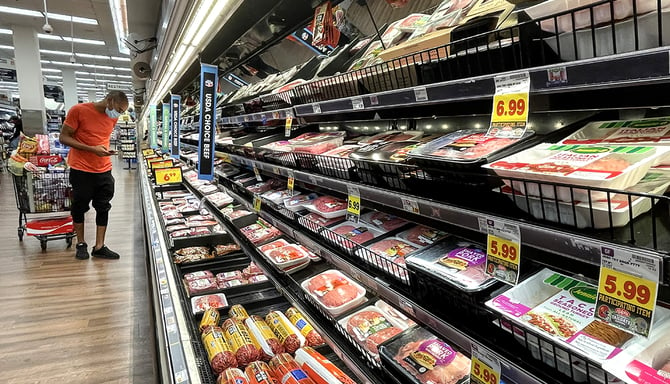High Global Food Prices Affecting Consumers Everywhere

Food price inflation, albeit slowing, is still high in many parts of the world. In Italy, compared with last year, pasta prices jumped by just over 12% in June. In the UK, a block of cheddar cheese was 38% more expensive than in May of last year.
In France, the cost of fresh vegetables rose 18% over the same period, and in the US, margarine was up 17%. In Germany, food prices continued to show above-average increases, approaching an estimated 14% rise this month.
Concerns have grown that retailers and food producers deliberately keep prices high to boost profit margins. It has been 18 months since Russia launched its full-scale invasion of Ukraine. Food and fuel prices, which were already rising around the world, skyrocketed as a result.
However, global commodity markets have since tapered off. Prices for both wheat and Brent crude oil — vital food production and transportation inputs — are roughly a quarter below their levels before the invasion. The wholesale price of natural gas, a key ingredient of fertilizers, is down 36% from its level immediately before the invasion.
What does this mean for me?
Analysts say the reason for the stubbornly high prices could be that it takes time for food to make the journey from field to plate. Many food items on supermarket shelves today are likely made from ingredients sourced with last year’s prices.
Additionally, supermarkets sign long-term deals with suppliers at a price that can only be amended once. Such a change could have been made in the immediate aftermath of Russia’s invasion of Ukraine.
More News
.webp)
Japan’s Rate Shift Is Rippling Through Global Bond Markets
1 week ago

China’s Growth Engine Stalls as Consumers and Investors Pull Back
1 week ago

Egypt’s Recovery Gains Traction as Household Pressure Lingers
2 weeks ago

OECD Warns AI and Tariffs Will Test the Global Economy
3 weeks ago

Zero Tariffs, Higher Drug Bills as US and UK Reset Pharma Trade
3 weeks ago

Catastrophe Bonds Go Global as Climate Risk Meets Yield Hunting
4 weeks ago
.webp)
Canada Shields Steel and Lumber Industries From Tariffs
1 month ago

Trump Drops Selected Tariffs in Response to Inflation Pressures
1 month ago